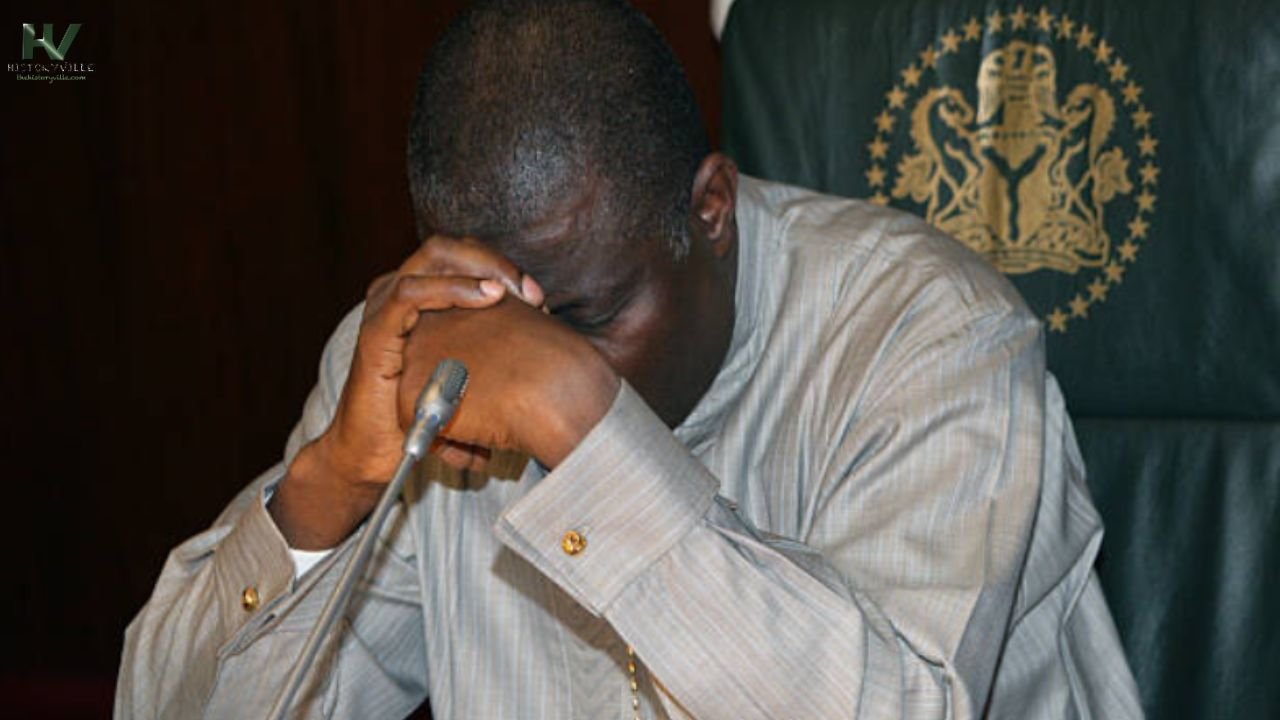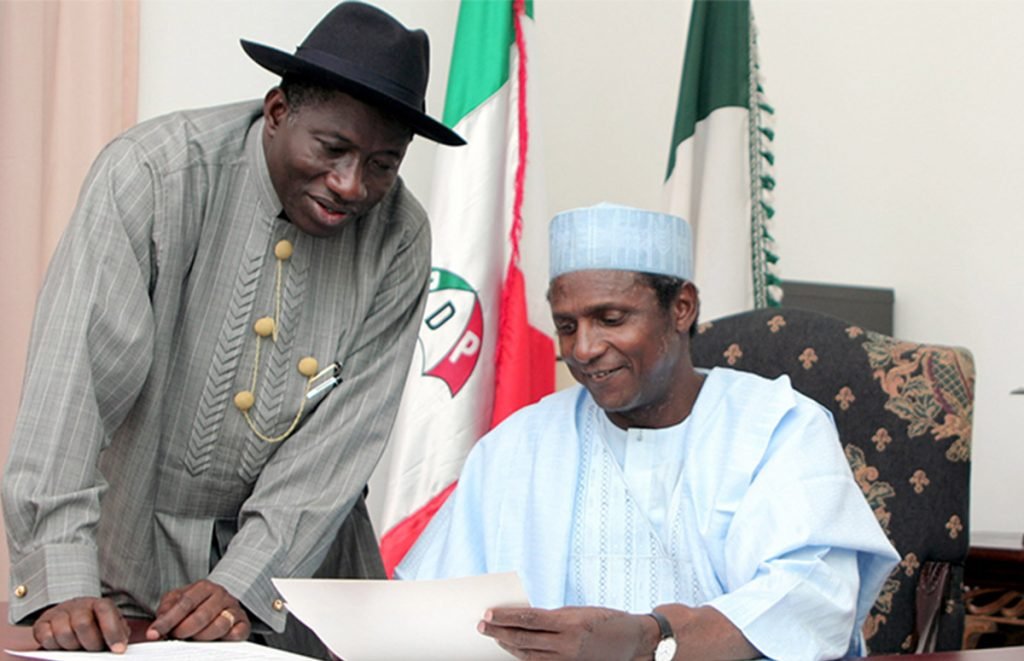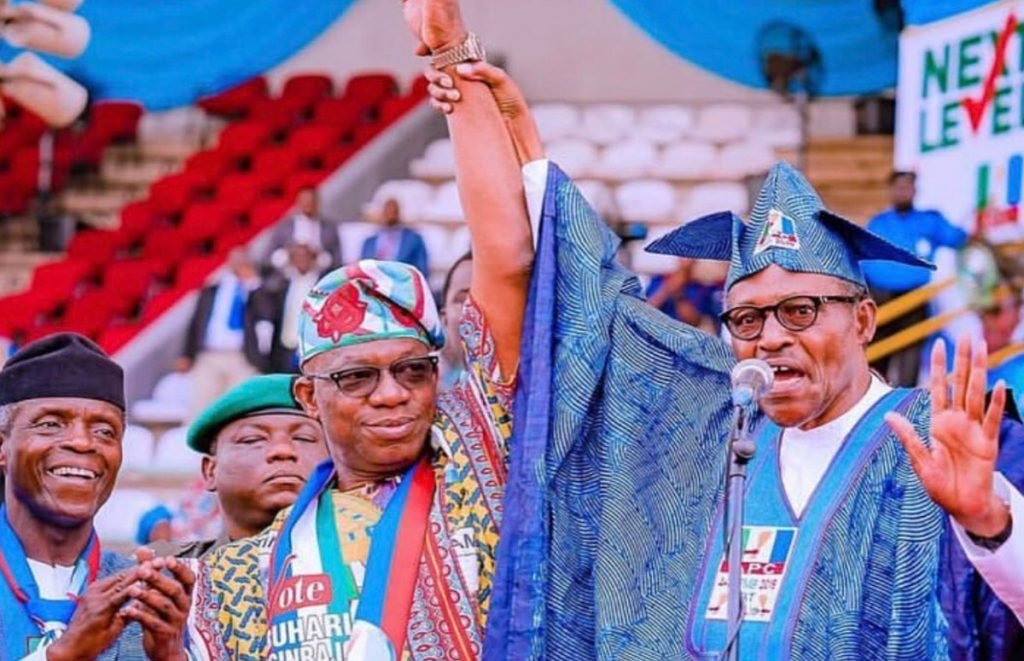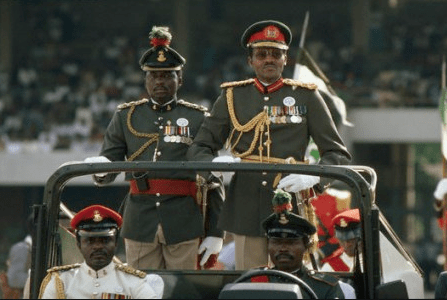No products in the cart.

When the All Progressives Congress (APC) wrested power from the People’s Democratic Party (PDP) in 2015, it was hailed as a new dawn in Nigerian politics. After 16 years of PDP’s uninterrupted rule, the last being President Goodluck Jonathan, the APC promised change, a break from the past, and a government that would tackle corruption, insecurity, and economic stagnation. But ten years on, how well has the APC delivered on these promises? What did it do differently from the PDP? And has Nigeria truly fared better under its stewardship?

The APC’s emergence was unprecedented. A coalition of opposition parties, it brought together progressives, former PDP stalwarts, and political heavyweights with a single goal: to unseat a ruling party many believed had lost its way. The slogan “Change” resonated with millions of Nigerians disillusioned by corruption scandals, economic mismanagement, and security crises under the PDP. But did the APC truly bring about change, or did it merely inherit and perpetuate old habits?
First, let us go back 10 years and assess how President Goodluck Jonathan lost the 2015 presidential election.
Contents
The 2015 Presidential Election
The 2015 Presidential election in Nigeria, which was the fifth since 1999, marked a significant turn in the country’s democratic history. Nigeria’s electoral body in charge of conducting elections, INEC, registered 28 political parties, but only 14 parties submitted the names of their presidential candidates to participate in the election.
However, the battle was between the incumbent President, Goodluck Jonathan of the People’s Democratic Party (PDP) and a former military Head of State, retired Major-General Muhammadu Buhari of the All Progressives Congress (APC).
The APC was a coalition of three major opposition parties, the Action Congress of Nigeria (ACN), the All Nigeria People’s Party (ANPP) and the Congress for Progressive Change (CPC). A faction of the All Progressives Grand Alliance (APGA), led by Governor Rochas Okorocha of Imo State, would also join.
Opposition to President Jonathan’s presidential ambition was fierce. It began with challenging his eligibility to contest, having served “two terms” in office. Fortunately, the court ruled in his favour, stating that “the circumstances in which Jonathan became President could not be counted as a term in office.”
Next was the increase in terrorist attacks in the country. Boko Haram insurgents were relentless as they attacked villages, kidnapping and raping women and killing men. Also, five serving Governors, alongside one-third of the members of both the Senate and House of Representatives, defected from the PDP to the APC.

Former President Olusegun Obasanjo was not left out of the debacle, as a letter he had written to President Jonathan challenging his candidacy was leaked. He also resigned from the PDP, tore his party card and described the party as ‘useless.’
These did not deter President Jonathan as he went ahead to win the party’s Presidential primaries on December 11, 2014, at the party’s National Convention. He retained his Vice President, Namadi Sambo, as his running mate.
Meanwhile, the APC also held its National Convention, producing Muhammadu Buhari as its Presidential candidate and Professor Yemi Osinbajo as his running mate. In preparation for the elections, INEC carried out a Continuous Voters Registration (CVR) exercise to build on the 2011 biometric voters’ register, which began in 2014 across the country. The electoral body also introduced the Permanent Voter’s Card (PVCs) and electronic card reading system to significantly reduce electoral malpractices such as fraud, vote buying, multiple/fake registration and voting and inflating figures.
By February of the next year, when the elections were scheduled to be held, only 76% of the populace had been issued their voter’s cards. This led to the postponement of the election for six weeks to enable more voters to obtain their cards.
Another reason for INEC’s postponement of the elections was the military’s withdrawal of its support for the February 14 election date, and to improve the security situation that yielded results, as most areas controlled by Boko Haram were recaptured.
D-day arrived, and voters trooped out in their numbers to various polling units to choose the next set of leaders at the National Assembly and the next President of the country. PVCs and biometric Card Readers tackled the problem of electoral fraud, although there were minor technical issues with the Card Readers in some polling units.
Surprisingly, the expected violence was non-existent and at a bare minimum. Thus, the election has been described as one of the most successful, credible and peaceful elections the country has ever had.
Earlier, President Jonathan had signed the Accord Agreement with other candidates to ensure peaceful conduct by the electorate and the parties during and after the elections. This way, national interest was placed above that of self. Although hiccups in the election include the late arrival of electoral officers and election materials to polling units, the number of petitions rejecting the results of the election was low compared to previous elections conducted in the country, especially the 2011 elections.
After due calculations of the results, on April 1, 2015, INEC Chairman, Professor Attahiru Jega, announced Muhammadu Buhari as the winner of the presidential election. While the APC polled 53.96 per cent of the total votes cast, the PDP polled 44.96 per cent. The APC also won a majority of the governorship elections and seats in the National Assembly, bringing the 16-year dominance of the PDP over the national legislature to an end.
Remarkably, this was the first time since the beginning of the Fourth Republic in 1999 that power would alternate between political parties at the national level. In a show of excellent sportsmanship, President Jonathan admitted defeat and congratulated the newly elected president on his victory.
Why Goodluck Jonathan Lost
So many reasons abound suggesting why the tide of favour turned against the erstwhile “lucky man.” President Jonathan’s administration had been rife with corruption allegations, Boko Haram insurgency and banditry, high rate of youth unemployment, religious conflicts and underperformance in different sectors of the economy.
Firstly, Jonathan was accused by his opponents of lacking the will to fight corruption in his administration, and he seemed to turn a blind eye to the looting and corrupt practices which took place.
A majority of Nigerians, especially in the North and West, were utterly dissatisfied with his government. This allowed the opposition to criticise every move made and promise that things would be handled differently if they were to be given power. The APC harped on the failure of the government to fulfil campaign promises and convinced the electorate of the need for a change. In fact, that was the slogan used to win the hearts of their would-be followers: CHANGE.
Another supposed reason for President Jonathan’s defeat was the low turnout of voters compared to the 2011 elections. This was due to heightened insecurity, especially in the Northern part of the country. The Boko Haram attacks and killings confined some Northerners, who could have voted for Jonathan, to their homes. Some, however, argued that their votes would not count.
The PDP’s internal crisis also contributed to Jonathan’s loss at the polls, and it is very likely that some members may have worked against the interests of the party during the election.
There were claims of a purported agreement allegedly signed by President Jonathan stating that he would not run in 2015, but he denied such claims and insisted on contesting. This invariably weakened the party as some leading figures made their way to opposition parties. Former President Olusegun Obasanjo, who was a major player in the PDP, also caused a scene when he tore the party’s card and resigned from the party.

In addition, the PDP lost control of some key states due to the defection of their governors, and so, the party could not control the electoral processes there.
While launching a book on his tenure in office, My Transition Hours, Jonathan stated that former governors of the PDP who defected to the APC because they were blinded by ambition cost him the election.
He also blamed the northern leaders who wanted to return power to the North for sabotaging his re-election bid and the barrage of fake news that put him in a bad light.
One cannot overlook the hate campaign on which Jonathan hinged his presidential ambition. This also turned out to be his undoing. Valuable time was spent discrediting the opposition instead of building on his achievements since attaining office and revealing more plans for the future.
The hate campaigns against Buhari denied the electorate the opportunity to be made aware of the good intentions of the PDP and made the latter quite popular with the masses. Thus, their hate campaign backfired.
Buhari’s previous rule as Head of State also gave him an edge over Jonathan. He was seen as a ‘no-nonsense’ man compared to Jonathan, who was viewed as, according to the opposition, clueless. This was reflected in Buhari’s campaign message, where he promised to fight and eradicate corruption, and he won the hearts of Nigerians who were desperate to experience the “change” he promised.
Although President Jonathan had declared publicly while campaigning that he would only hand over power to a person younger than himself, he handed it over to Muhammadu Buhari, who was about 15 years older than him.
His decision was seen as not only an honourable one but also set a precedent for other African leaders to emulate. On the one hand, Jonathan’s supporters were traumatised and believed that he should not have given up without a fight, but on the other hand, his actions were applauded because a post-election crisis was averted.
The Fight Against Corruption: Genuine Reforms or Selective Prosecution?
One of APC’s strongest campaign promises in 2015 was to combat corruption. The Buhari administration, in particular, launched high-profile investigations and prosecutions. Some PDP bigwigs found themselves facing trial, while others defected to the APC and seemingly escaped scrutiny. Critics argue that the anti-corruption drive was lopsided, targeting opposition figures while shielding allies. Yet, defenders of the APC highlight efforts such as the Treasury Single Account (TSA), the Whistleblower Policy, and digital payment reforms as genuine steps towards transparency. But has corruption truly declined, or has it merely taken a different form?
The APC inherited a country grappling with Boko Haram insurgency in the Northeast. Initially, its administration achieved notable successes in reclaiming territories previously held by the terrorists. However, new threats emerged—banditry, kidnappings, and farmer-herder clashes became widespread, spreading insecurity across the country.

The PDP was often criticised for corruption and impunity, but it allowed a degree of political competition. The APC, despite its promises of strengthening democracy, has faced accusations of undermining institutions, suppressing dissent, and using security agencies against opponents. From controversial court judgments to allegations of electoral manipulation, has the APC truly upheld democratic ideals, or has it refined the art of power consolidation?
What Next?
As the APC marks 10 years in power, the verdict on its performance remains mixed. Some argue that it has taken steps towards reform, while others insist it has failed to deliver on its lofty promises. With another election cycle approaching, Nigerians must ask themselves: has the APC justified its mandate, or is it time for another political transition?
Ultimately, the story of APC’s decade in power is one of contrasts—of hope and disappointment, progress and regression. The question is: will history judge it more kindly than its critics do today?
Your support can make a world of difference in helping us continue to bring Nigeria’s rich history to life! By donating to HistoryVille, you’re directly contributing to the research, production, and storytelling that uncover the incredible stories of our past. Every donation fuels our mission to educate, inspire, and preserve our heritage for future generations.
Please stay connected with us through our social media handles and make sure you are subscribed to our YouTube Channel. Together, let’s keep the stories of Nigeria’s past alive.






Leave a Reply
View Comments